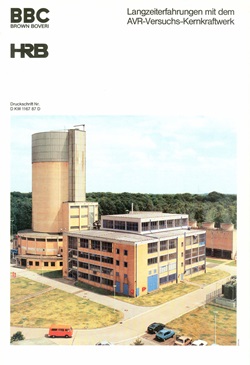| Map of the nuclear world | The uranium story |
| INES and the nuclear accidents | Radioactive low radiation?! |
| Uranium transports through Europe | The ABC deployment concept |
National ABC deployment concept - 6. -
6. Biological Task Forces
In addition to the Analytical Task Forces (ATFs) for radiological and toxic operations, there are plans to set up Biological Task Forces (BTFs) for epidemic cases. Four units are to be set up nationwide. However, a location has not yet been decided on. The protection commission at the Federal Ministry of the Interior insisted on the urgency of the "research project 167":
“In contrast to the containment of conventional, nuclear or chemical attacks on the public, the security authorities are insufficiently prepared for the terrorist use of biological warfare agents. The high risk potential of such agents requires short-term decisions with far-reaching consequences for public life (quarantine, shutdowns, mass vaccinations). At the same time, the detection of biological warfare agents is difficult. In particular, the latency with which the effects of bio-warfare agents become visible makes direct verification of attacks impossible. The mere announcement that an attack will not be carried out or the simulation of an attack with harmless material is a standard situation in the context of bioterrorism, based on the experience of autumn 2001 (the occurrence of objects potentially containing anthrax spores). A precautionary cordoning off of affected areas and the isolation of a large number of potentially affected areas People cause considerable economic and psychological damage and may be the primary target of an attacker. Safe and fast laboratory tests, which enable a proper hazard assessment, are currently only available at a few specialized institutions (Robert Koch Institute, Bernhard Nocht Institute, various university institutes) within a period of days. The limited capacities of these facilities and the long transport times for sending samples make the repeated occurrence of threats at various locations (as happened in autumn 2001) a public emergency that can no longer be managed. The decentralized availability of test methods, which largely correspond to those of the stationary laboratories and which could be monitored by these laboratories, would result in a desirable and necessary increase in capacity. "(24)
According to the plans, a BTF should fulfill various tasks:
- identification and detection of biological substances,
- situation assessment,
- Assessment of the development of the situation,
- Advice to the local head of operations,
- Development of countermeasures.
Depending on the situation, a BTF could only give advice over the phone, send a reconnaissance team or deploy in full strength. If the head of operations would like to request a BTF on site, he would send a request to the situation center of the Federal Ministry of the Interior in Berlin, which would forward the request to the joint reporting and situation center (GMLZ) of the BBK, which would then alert a BTF. Prof. Dr. Herbert Schmitz from the BNI explained the need for "mobile diagnostics" in 2004: "Because of its high mobility, naturally only a few mobile laboratories are required within Germany. With two locations in the north and south, all locations can be reached in an acceptable time. The mobile laboratories complement the stationary units so that their number can also be kept smaller. "
Two pilot projects were started on May 1, 2004 to develop and test a BTF concept: The Hamburg professional fire brigade and the Bernhard Nocht Institute (BNI) are involved in the "Biological Task Force Hamburg", and the "Biological Task Force Berlin" the local State Criminal Police Office and the Robert Koch Institute (RKI).
Several individual projects are being pursued as part of these pilot projects:
- The production of a set for taking samples in suspected biological cases. Such an "organic backpack" will be introduced to all ABC explorers from December 2009.
- The Hamburg fire brigade developed a mobile laboratory of security level S-3 in cooperation with the BNI. The wooden model is the size of a standard 20-foot container, so it is about 6,0 x 2,4 x 2,3 m in size. It could thus be transported as a "roll-off container laboratory" with a swap-loader vehicle, as it is used everywhere by fire brigades today. The laboratory has a lock, a power generator, a fresh water and a waste water container, a safety workbench with an autoclave, a PCR device, a laptop, several refrigerators and drawers. In connection with this laboratory, work is being carried out on the development of a molecular genetic test for the rapid detection of germs based on the polymerase chain reaction (PCR). For technical reasons, a mobile laboratory cannot meet the same safety standards like a stationary laboratory, but since it should only be used in the event of danger and not in continuous operation, its design standards are considered to be justifiable.
- The Berlin LKA and the RKI are developing a chemical-biological mass spectrometer (CBMS) for the rapid assessment of suspicious samples. The device works on the basis of the so-called MALDi ToF mass spectroscopy (Matrix-Assisted Laser Desorption / Ionization Time of Flight).
- On behalf of the Federal Ministry of Education and Technology, the Robert Koch Institute in Berlin is working on a rapid verification procedure for bio-terrorist agents. The three-year project (head: Dr. Heinz Ellerbrok) is called "Biological threats: risk assessment, ultra-fast detection and identification of agents relevant to bio-terrorism" (BiG Rudi).
In addition, the technical and environmental watch of the Hamburg professional fire brigade introduced a bio-quick test, the "BioSniffer", years ago to examine department store goods, banknotes or mail for contamination. The BioSniffer from the Stuttgart manufacturer BvB-Consult GmbH works on the basis the bioluminescence and delivers a test result within a minute.
On request, the BBK announced the current status of BTF project development:
“As part of a pilot project, a feasibility study for the construction and use of a mobile B-laboratory was successfully carried out and completed. At the moment, considerations are being made to extend the analytical capabilities of the ATF to the area of biological (B) hazards. Since the technology in the field of the detection of biological hazardous substances has not yet progressed so far that reliable, field-compatible, mobile rapid detection devices are available, the focus of the work is currently on the further development of an overall concept. "
If, however, there are no "reliable mobile rapid detection devices suitable for use in the field", the question naturally arises as to which systems the Bundeswehr then uses in the "B defense laboratory equipment" of its NBC investigation center.
*
(24) Federal Ministry of the Interior - Protection Commission: Detailed description of the research project 167, Berlin, undated
Donation appeal
- The THTR circular is published by the 'BI Environmental Protection Hamm' and is financed by donations.
- The THTR circular has meanwhile become a much-noticed information medium. However, there are ongoing costs due to the expansion of the website and the printing of additional information sheets.
- The THTR circular researches and reports in detail. In order for us to be able to do that, we depend on donations. We are happy about every donation!
Donations account:
BI Umweltschutz Hamm
Purpose: THTR circular
IBAN: DE31 4105 0095 0000 0394 79
BIC: WELADED1HAM
| Sources | Top |
***



